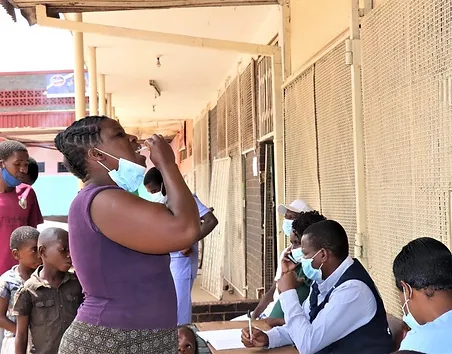Zimbabwe is facing a surge in cholera cases, with reports of over 18,000 cases, 71 confirmed deaths, and more than 300 suspected deaths across all 10 provinces.
As of 16 January, 396 people had been hospitalised, the ministry of health announced.
Zimbabwe reported its first cholera case in February 2023 in Chegutu, about 100km west of the capital Harare.
World Health Organisation (WHO) has been assisting the Zimbabwe government with decentralized treatment centres to tackle the cholera outbreak with the support of the United Kingdom government.
Cholera treatment centers have been established and are currently functioning in Highfields and Budiriro polyclinics in Harare. The treatment centres have a 10-bed capacities and supplies for 100 cases.
“We need to stay vigilant. But there is an urgent need to stop business as usual. This cholera outbreak started in February 2023. We didn’t manage to control and stop it. The outbreak is now getting to another level. Immediate, strong and innovative actions are needed now,” said Prof Jean-Marie Dangou, WHO representative to Zimbabwe.
Pete Vowles, the British Ambassador to Zimbabwe, said on X, the social media platform formerly known as Twitter that the United Kingdom has provided funding and technical help to fight the cholera outbreak in Zimbabwe.
“The UK government has already provided US$764,000 and technical help to the cholera response through its partners Start Fund, Goal, Christian Aid, WHO and UNICEF. With the European Union and Ireland we will contribute a further US$3 million to the Health Resilience Fund, which is proving tents, treatment centres, case management, WASH kits and oral rehydration,” said Vowles.
Zimbabwe is facing a crippling water crisis. Residents go for weeks without running water. Broken sewer systems, inadequate sanitation, and contaminated water sources are attributed to causing the disease outbreak.

